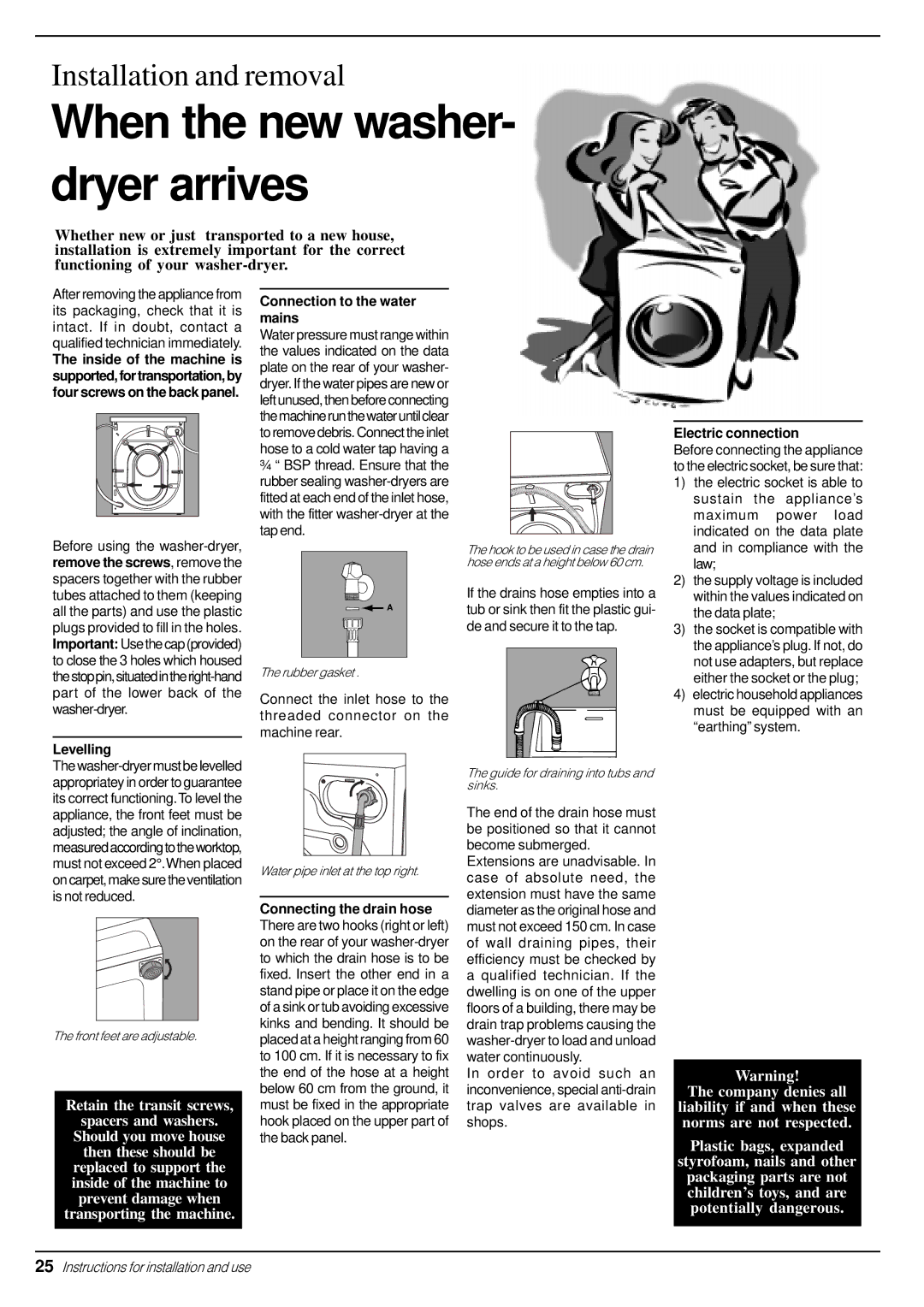
Installation and removal
When the new washer- dryer arrives
Whether new or just transported to a new house, installation is extremely important for the correct functioning of your
After removing the appliance from its packaging, check that it is intact. If in doubt, contact a qualified technician immediately.
The inside of the machine is supported, for transportation, by four screws on the back panel.
Connection to the water mains
Water pressure must range within the values indicated on the data plate on the rear of your washer- dryer.If the water pipes are new or left unused, then before connecting themachinerunthewateruntilclear to remove debris. Connect the inlet hose to a cold water tap having a
¾“ BSP thread. Ensure that the rubber sealing
Electric connection
Before connecting the appliance to the electric socket, be sure that:
1) the electric socket is able to | |
sustain the | appliance’s |
maximum | power load |
indicated on the data plate | |
Before using the
Levelling
![]()
![]() A
A
The rubber gasket .
Connect the inlet hose to the threaded connector on the machine rear.
The hook to be used in case the drain hose ends at a height below 60 cm.
If the drains hose empties into a tub or sink then fit the plastic gui- de and secure it to the tap.
| and in compliance with the |
| law; |
2) | the supply voltage is included |
| within the values indicated on |
| the data plate; |
3) | the socket is compatible with |
| the appliance’s plug. If not, do |
| not use adapters, but replace |
| either the socket or the plug; |
4) | electric household appliances |
| must be equipped with an |
| “earthing” system. |
The
The front feet are adjustable.
Retain the transit screws,
spacers and washers. Should you move house then these should be replaced to support the inside of the machine to prevent damage when transporting the machine.
Water pipe inlet at the top right.
Connecting the drain hose There are two hooks (right or left) on the rear of your
The guide for draining into tubs and sinks.
The end of the drain hose must be positioned so that it cannot become submerged.
Extensions are unadvisable. In case of absolute need, the extension must have the same diameter as the original hose and must not exceed 150 cm. In case of wall draining pipes, their efficiency must be checked by a qualified technician. If the dwelling is on one of the upper floors of a building, there may be drain trap problems causing the
In order to avoid such an inconvenience, special
Warning!
The company denies all
liability if and when these norms are not respected.
Plastic bags, expanded
styrofoam, nails and other packaging parts are not children’s toys, and are potentially dangerous.
